A few years ago as we left our rented apartment in Rome and walked towards St. Peter’s Square I notice a ragged, filthy woman sitting on a piece of cardboard with a baby laying lethargically in her arms. She looks up with mournful eyes and pathetically mumbles something as she reaches out hoping I’ll put coins in her hand.
A few feet beyond her is a man stooped over his cane so painful-appearing that he is barely able to lift his eyes to make contact with mine. A paper cup is stationed on the sidewalk in front of him as he also reaches out a filthy hand plaintively begging for money.
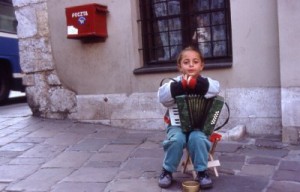
That weekend at Mass we were exhorted by Our Lord Jesus to feed the poor, clothe the naked, give drink to the thirsty and other sorts of charitable action to help the poor. But who are the poor Jesus is referring to?
Are the people I passed on the street the poor I should help? Are they the one’s that Jesus refers to? Is the man sitting on the corner nursing the last few drops from his whiskey bottle the one I’m supposed to give a drink to?
Many people asked these questions today and struggle with the commands to help the poor and the thirsty. They ask the question who are the poor and the thirsty and hungry?
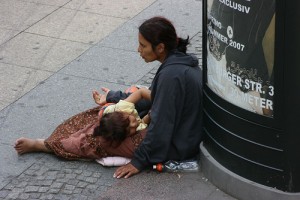
My heart weeps for these kids as I see a young boy sitting in an underground walkway by himself all day without friends or family looking up to strangers who walk by ignoring him. It rips my guts out.
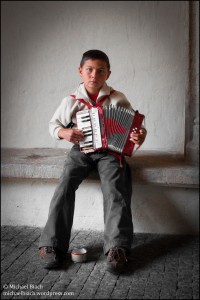
What can I do when they are part of a family and a clan that treats their children this way and think it is normal. If I give him money it only propagates his abuse. A kind word or bit of food is about all I can do with a clear conscience.
I remember walking through Mumbai India. In advance, I had packed a bunch of sandwiches to hand out as I walked through the poor parts of the city. I would spot destitute people sitting on the sidewalk, or children climbing into dumpsters for their breakfast.
I handed out the sandwiches with joy but was stopped by a young Indian boy about 10 years old. He was very bold and said, “You are doing a very bad thing.” I asked, “Why?” he said, “People need to take responsibility for their lives. If you give them things they will never learn to be responsible for themselves.”
Very wise words for a 10-year-old. It’s not that I believe that everyone is able to look out for themselves–there are many who are in desperate need of our help and unable to help themselves, but his point was well taken. I told him his father must be a wise man.
I’ve watched a crippled man leaning on a cane whimpering in pain until 5:00 PM when his “shift ended”. He looked at his watch, he stood up straight and walked back home. He was there again the next day exploiting the sympathies of naïve, kindly-hearted people.
We’ve had two young girls with babies in their arms standing very close to us on a bus full of smiles. We spoke kind words and paid attention to the babies only to find out a few moments later that our fannypacks, purses, and everything else had been unzipped.
The babies are often drugged to make them look lethargic and pathetic. They are used as zombie props in the art of theft. Often the girls are not even their mothers. They can be referred to as “rent-a-babies.”
Once my wife caught a boy with his hand in her pocket. Many of these people beg for a living and when they don’t make enough begging they steal.
My wife lost her wallet this way a while ago and tourists often find their passports, credit cards and cash have disappeared. This is why we repeatedly warn our pilgrims to watch out for pickpockets everywhere we go.
Personally, I cannot give money to such folks because to do so propagates their lifestyle, supports their continued child abuse, thievery and despicable lifestyle. We cannot support and condone such conduct. How do I know the real poor and those that are just making a dishonest living, some of them quite a good living?

Second, I look for the Missionaries of Charity in their simple white habits striped with blue. It does not have to be their specific order but these I know and have confidence in.
We know where they are housed in Rome. It is an inconspicuous door with a simple doorbell to the right. I push the doorbell, then push it again and sooner or later one of these beautiful sisters will open the door.
They all have the same gracious smiles and kindly faces as their founder, Mother Teresa. My wife and I return her smile and hand them a generous donation. We ask them to use it for the poor and to assist in their ministry. I don’t know who really needs the money, but they do.
Once in Mumbai India we were invited to visit one of their compounds. The Missionaries of Charity took us on a tour—room after room of disadvantaged, mentally handicapped, diseased and dying (out of respect we took no pictures except of the sisters you see here).
One room contained about 100 cribs in neat rows, each with a child unable to care for themselves. Many had diseases, mental handicaps, twisted bodies. Janet and I were in tears having never seen anything like this in our lives.
What touched us most was the sisters and volunteers working among these castaways treating them with great love and affection. They bathed them, fed them, changed their diapers, caressed them.
However, not everyone that comes to their compound are admitted. They are selective who gets admitted to their care.

We were moved tears as we watched the sisters love these disadvantaged people as though they were loving Jesus himself. We hugged them all and with choked voices said, “Sisters, you make us proud to be Catholic. I couldn’t do what you do for even 10 minutes. You make us very proud!”
In Jesus’s time there was no Social Security, unemployment benefits, welfare or other social supports for the underprivileged. Churches had not begun charitable work and few cared for anything but themselves.
In ancient Rome life was cheap and cities were full of slaves and the destitute. A drink or offering of food to a slave laboring under the hot sun was a true act of charity because no one paid any mind to the slaves. Jesus stopped to heal and care for the blind, the lame, the hungry of his time.
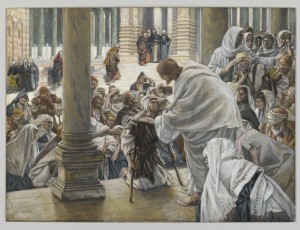
Many were unjustly imprisoned and the truly poor were cast aside. Were some poor because they were lazy or because they made poor choices? Of course. The book of Proverbs in the Bible is full of exhortations for hard work and to eschew laziness and sloth. It is the same today.
But often others are made poor by choices of their parents or others around them. At the same time in America it is hard to think of someone as poor who has cable television, a cell phone and many other benefits and amenities of our modern welfare society–especially since I’ve seen so much from around the world.
Our society has a good number of people who know how to “milk the system”, get what is undeserved and avoid the effort and work to care for themselves. For them St. Paul writes, “For even when we were with you, we gave you this command: If any one will not work, let him not eat.” (2 Thess 3:10)

But, we also want to help those who are truly in need as Jesus requires of us. Now that we are Catholics we make sure our donations are given to legitimate Catholic charities. We also make sure to help our own when they are in need.
When we are in Jerusalem we take up donations and give money to the Patriarch of Jerusalem and needy Christians. We know that such gifts will be given to the truly needy among our brothers and sisters in the Holy Land.
There are too many charities that use the money improperly and not all of it gets to those who need it. Unhappily there are many of these, even in the Holy Land. So, beware.
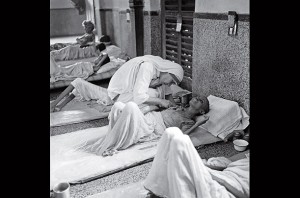
When we were Protestants we used to believe in “faith alone” but that mantra is hard to chant when hearing the gospel which says heaven and hell will be the result of our choices—whether we care for others or whether we ignore them.
Dear Lord, give us wisdom and charity and the means to help and willingness to do so. Mother Theresa, pray for us!
Another good article: “Who Are ‘the Poor’ Anyway?”



This Post Has 13 Comments
Thank you Steve and Janet. My wife, who works with our parish outreach ministry to the poor, struggles with this dilemma: making sure we help those that need it and be good stewards of the generosity of our parishioners as well all strive to follow our Lord’s command. In our country many men and women, being veterans of our society’s safety net, know how to “work the system”. Yesterday evening we were discussing this and your article is timely. I printed it. So yes: “Dear Lord, give us wisdom and charity and the means to help and willingness to do so. Mother Theresa, pray for us!”
I was a caseworker with St. Vincent de Paul Society at my Houston parish. I saw a lot of “working the system”. The people asking for help are actually pretty smart and should be using their intelligence in a paying job. Most were illegals. I remember only 2 cases in a year who would not be calling us again. They truly had emergencies and had never asked for help in the past. I have also had bad experiences with “sharing Sundays” and no longer participate in that program.
I have decided to help someone in need by offering a job. I hired a legal immigrant from El Salvador, who is a widow with children. She appreciates so much that I offered her a paying job to clean my home once a week.
Steve, your post’s timing was perfect as I was pondering over something that I read which is attributed to St. John Chrysostom on Mathew 25:31-46, “You want to honour Christ’s Body? Then do not neglect him when he is naked, hungry and sick”. ” For he who said ‘This is my Body’ and by his word confirmed the fact, also said, ‘For I was hungry and you gave me no food’, and Just as you did not do it to one of these, you did not do it to me.'”
Thank you for the post.
I don’t think we’re obligated to give to those we know (through our own direct witness or reliable testimony) will misuse it, but I think it is very damaging spiritually to become jaded about giving alms. St, John Vianney hit it on the head: in the end, we are only responsible for our own choices.
“There are those who say to the poor that they seem to look to be in such good health: “You are so lazy! You could work. You are young. You have strong arms.”
You don’t know that it is God’s pleasure for this poor person to go to you and ask for a handout. You show yourself as speaking against the will of God.
There are some who say: “Oh, how badly he uses it!” May he do whatever he wants with it! The poor will be judged on the use they have made of their alms, and you will be judged on the very alms that you could have given but haven’t.”
St. John Vianney
Kate:
Thanks for your helpful input and sage advice. My only defense would be that I have limited resources for giving so I choose to use my limited resources with discretion and wisdom and where it know it will be put to the best use. Jesus gives us talents to use including our resources and he expects us to be wise in the use of them.
I enjoyed your article. It is a struggle we all have, to hear and act upon the will of the Lord. If I my make a comment because I believe your heart is in the right place. Please consider not saying “I have limited resources”. You don’t have to explain to us and when I do that it sounds a little disingenuous even to me. Your and my responsibility is to be the best stewards we can with whatever resources the Lord has given us, large or small. Thank you for your faith and your ministry.
I heard someone say, and I always try to live by: “It is better to err in love.”
Steve –
Thank you for this most insightful and touching article. You are very correct in the way you show us the problem that we have with our limited resources. A few years ago, I inherited a rather large sum of money and began to be charitable with it. It didn’t take long for me to get $50K in debt on my credit cards, mostly through the begging of family members who always seemed to be in need, and a couple of people who latched on to me and never seemed to be able to get themselves straightened out. Finally, when I hit that number (50K) I made a tough decision: I cut everyone off as kindly as I could and told them I had to stop or I would soon be filing bankruptcy despite my trust fund.
Guess what – they all lived.
This is not to say that I do not try to still follow our Lord’s admonition to give to the poor and help in other ways, like doing home improvement projects with my Knights of Columbus council, but I have learned to be more discerning and especially to say “no” to the constant flow of begging letters that arrive in my mailbox. I still give, but $100 to pro-life causes has become $10 or $20 because I cannot support them by myself.
This said, let me hasten to add that a great deal of the suffering world-wide (including in America) is caused by callous and uncaring politicians who see the poor as props to be used for re-election rather than really caring for their plight. Our current system in the US is designed not to help people with education, personal property ownership, and self-reliance, but rather to create generational poverty. This is, in my opinion, part of what the pornography industry is used for in this country. In the 1960’s, the illegitimacy rate in the black communities was well under 20%. Despite institutional racism, the black family was strong and united. Now, with the promotion of fornication by media and the complicit silence of our government, it is around 75%, which most conveniently creates a beast called a “one-parent family” (which is a lie and oxymoron) which needs to be taken care of by our government, thus necessitating the poverty programs which enrich those who administer them and keep politicians in power by promises of relief that never come. This is the status quo and will remain such until people wake up and realize that the system does not work and they are being played.
When I do give charity personally, especially at the street corners where people tend to hold their signs asking for help, I like to ask “What’s your story?” A great deal of time I get people to talk. Most are quite friendly and I have run into a number of them who are veterans who have been dumped by the system that is more interested in starting wars for profit than it is in taking care of those who have answered the call to defend this country. Them I give to – no further questions asked.
Finally, the 10-year old you spoke with is indeed a wise young man, but there does need to be opportunity for someone to step out of their situation and better themselves. If there is no work to be done, how does one obtain employment? Since the change of our country from a self-sufficient agriculturally based society to an industrial society, the phrase “I need a job” has been put on the table. What man, owning his own property and raising his own crops (G.K. Chesterton’s Distributive Economic Model) needs “a job?” He has all that he needs on his own land. We have developed a system in which people are ill-trained to even keep themselves alive if our economy goes sour. Farming has become an industry, yet when I have traveled across this beautiful country in which we live, I see gigantic tracts of land which could support small homes, independent farms, and families. Why is such independence not being promoted? You know the answer. It means that men would be free, and no politician wants to try to rule over free men.
In short, the poverty industry is, in my opinion again, a gigantic scam as promoted by the government. Are there truly needy? Yes? Our Lord said we would have them with us till the end of time. But a great deal of such need could be alleviated if we were not being governed by crooks and shysters. I have friend in Milwaukee who has $125K equity in her house. She is disabled and therefore gets $1250 a month from the government to live on. She is always on the brink of having some service cut off. Yet she cannot refinance her house, take the $125K and get a lower interest rate and lower payments and have a slush fund in the bank because of government regulations on the banks. This is the kind of thing I am talking about and it infuriates me to no end.
Thanks for your well-written article on our responsibilities to the poor and the problems with it.
Wish there was a really good website that rated all the needy. Most of the time, I do not contribute to a new requester because I do not know them and were the money goes. God has blessed me with means and I want to share but I want to share wisely.
Tom Govern this site Charity Navigatir might help: https://www.charitynavigator.org/
For street people, consider keeping a few gift cards to a local coffee shop or grocery store on hand rather than cash handouts
STEVE RAY HERE: Al, that is a great idea. We have even invited homeless to join us at a restaurant for dinner. We keep snack food in our car to give to beggars along the road and freeway exits.
My wife also bought a man a meal, but make him a deal that he stop by the church for Mass. He agreed.
Once I found a wallet on the street. I called the man and he came to pick it up. I told him I wanted a reward. He asked what I wanted. I told him my reward was that he go to Church next Sunday and he agreed!
God bless you Al!
Hi, I'm from the UK where things are a bit culturally different. Here in Sheffield a city in the north of England, we have similar challenges. Our Diocese supports a centre for vulnerable people called the St Wilfred's centre. Before the pandemic, they had a scheme whereby we could purchase cards, I think 10 for £1.00 to distribute to anyone begging. That card entitled the person to a free shower and meal for one night. It was really interesting to see who was genuinely grateful and who gave us a mouthful of obscenities. We also have family in Cork in the Republic of Ireland and we have seen a minibus full of Roma people dropping off "beggars" outside churches and then collecting them in the evening! We also have a Roma woman who begs outside the Cathedral. I have given her a St Wilfs card before as have many others but she says she doesn't like the food so she doesn't go!!!!!!!
On the other hand, we have a large Slovak Roma community here, many of whom are cultural Catholics and one of the Priests at our Cathedral is of Polish heritage and has taught himself the Roma language and has baptised and confirmed and married many of them. Just before lockdown my husband who's in formation for the permanent Diaconate and myself went to an amazing, spirit filled Slovak Roma confirmation and we also had a Slovak Mass once a week before Covid. So I think we need to make sure we don't fall into the trap of being judgemental here. I tend to think that we are called to works of Charity, it's up to God to judge each individual. How do we not know that one small act of kindness, even to a "professional" beggar, is not part of God's bigger plan for that person? I work with refugees and asylum seekers many of whom are "illegal" and some are sent back, some aren't, but again as Pope Francis says "who am I to judge?" It's really hard, but I just try to be Jesus to everyone I meet. After all, the Holy Family were refugees.
STEVE RAY HERE: Mrs. Emma Green, thanks so muh for taking the time to share your unique experiences, especially with the Roma people, or as they are also known as gypsies. I think your parishes idea of a gift card is brilliant! Also the charity you show toward the Catholic Roma community is exceptional and to be commended.
Two items that I do want to clarify: first, about being judgmental, I agree with you, but we still need to. make prudcential judgments as Scripture requires of us. It would seem, and I am sure you would agree with me, that judgmental and prudential judgment are two different things.
Second, I have often heard the Holy Family were refugees, but that is actually incorrect. They were living in the larger Roman Empire. They traveled within that Empire both to Bethlehem and to Egypt. They could have very well used "public transport" had they the money to do so. Second, Bethlehem was the City of David of which Joseph was a member s it was actually "going home for a visit" we could say. In the flight to Egypt they stayed with a large Jewish community in today's Jewish area of Cairo. In our country we have two kind of refugees–legal and illegal. The Holy Family certainly did not break any laws, cross any illegal borders or begum beggars or social welfare recipients. It is expected that Joseph paid his way among his family both in Bethlehem and Egpyt. If nothing else, we know he had just received 3 very valuable gifts from the Magi which were probably providential gifts to finance the family's travel.
Again, thanks Mrr. Green for your insightful and heartfel comments and especially the manner in which you have kindly and charibly practiced the spiritual works of mercy among the poor. God bless you and I am looking forward to returning to England and Ireland soon!
Edward, regarding “the constant flow of begging letters”: I had formal training in what’s called “direct mail fundraising.” I learned that an organization could rent a mailing list for one-time use, paying a higher price for the names of people who have actually made donations. If anyone on the rented list made a donation, the renting organization would now “own” the name and be able to send unlimited begging letters to that person and rent the name to other organizations. The more organizations someone donates to, the greater the volume of begging letters that will arrive. I donate almost exclusively to organizations that I’m personally familiar with. I know what they do with the money. The vast majority are bona fide, but not all are efficient with the money they raise. And I know from firsthand experience that there are frauds. Not many, I think, but they’re out there.
Comments are closed.